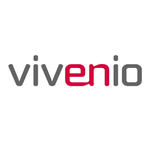Description

ExpoPlatform

Oxford Abstracts
Comprehensive Overview: ExpoPlatform vs Oxford Abstracts
As of my last update in October 2023, here's a comprehensive overview of ExpoPlatform and Oxford Abstracts:
ExpoPlatform
a) Primary Functions and Target Markets
ExpoPlatform is primarily a digital event management platform designed to facilitate virtual, hybrid, and in-person events. Its primary functions include:
- Event Management: Comprehensive tools for managing attendee registration, ticketing, and scheduling.
- Networking & Engagement: Features robust networking capabilities like AI-powered matchmaking and 1:1 video meetings.
- Virtual & Hybrid Events: Support for streaming sessions, virtual booths, and exhibitions.
- Analytics & Reports: Real-time data analytics for measuring engagement and improving event ROI.
Target Markets: ExpoPlatform primarily targets industries and organizations that host large-scale conferences, exhibitions, trade shows, and corporate events. These include trade associations, event organizers, corporations, and academic institutions.
b) Market Share and User Base
ExpoPlatform has carved a significant niche in the digital and hybrid events space, especially after the shift towards virtual events due to the COVID-19 pandemic. Though exact figures can fluctuate, ExpoPlatform has a strong presence in Europe and North America, catering to a diverse range of clients.
c) Key Differentiating Factors
- Customizability: Offers a highly customizable platform allowing clients to tailor their event interfaces and functionalities.
- Comprehensive Suite: Provides a full suite of tools from networking, content streaming to data analytics, making it a one-stop solution for event management.
- AI-Powered Features: Utilizes AI for enhancing user experience, such as matchmaking and personalized content recommendations.
Oxford Abstracts
a) Primary Functions and Target Markets
Oxford Abstracts specializes in abstract management for academic and research conferences. Its core functionalities include:
- Abstract Submission Management: Streamlines the process for submitting, reviewing, and selecting abstracts.
- Conference Management: Tools for scheduling, program building, and delegate management.
- Peer Review System: Facilitates blind and open peer review processes, supporting academic integrity and selection clarity.
- Integration Capabilities: Ability to integrate with other conference management systems.
Target Markets: Oxford Abstracts mainly targets academic institutions, scientific organizations, and researchers that conduct conferences requiring rigorous abstract submission and review processes.
b) Market Share and User Base
Oxford Abstracts is well-regarded in the academic and scientific community, although its user base is considerably more niche compared to broader event management platforms. Its reputation is built on reliability and efficiency in handling complex and detailed academic conference requirements.
c) Key Differentiating Factors
- Focus on Academia: Unlike general event platforms, Oxford Abstracts provides specialized tools for academic conferences, focusing on the needs of researchers and scholars.
- Robust Review Process: Offers flexible and advanced options for abstract review, meeting high academic standards.
- User-Friendly Interface: Designed with simplicity in mind, ensuring ease of use for both organizers and contributors.
Comparison Summary
- Target Audience: ExpoPlatform serves a wider range of event types, including corporate and trade events, while Oxford Abstracts specifically addresses the needs of academic conferences.
- Features: ExpoPlatform offers a broader range of event management tools, including virtual event capabilities, whereas Oxford Abstracts excels in managing the academic peer review and abstract selection process.
- Market Presence: ExpoPlatform has a larger overall market presence due to its diverse application in various industries, while Oxford Abstracts maintains a strong position in its specific niche.
- User Experience and Customization: ExpoPlatform provides more customization features for various event types, while Oxford Abstracts emphasizes ease of use for academic tasks.
Both platforms serve distinct needs in the event management landscape and are leaders in their respective areas of focus.
Contact Info

Year founded :
2015
+44 122 390 4049
Not Available
United Kingdom
http://www.linkedin.com/company/expoplatform

Year founded :
Not Available
Not Available
Not Available
Not Available
Not Available
Feature Similarity Breakdown: ExpoPlatform, Oxford Abstracts
ExpoPlatform and Oxford Abstracts are both platforms designed to streamline event management and engagement, particularly in the realm of conferences, exhibitions, and similar events. Here’s a breakdown of their features, user interfaces, and any unique aspects:
a) Core Features in Common
-
Event Management:
- Both platforms offer comprehensive tools for managing events, including scheduling, attendee registration, and session planning.
-
Attendee Engagement:
- They provide features to enhance attendee interaction, like networking tools, virtual lobbies, and interactive Q&A sessions.
-
Exhibitor and Sponsor Management:
- Both platforms allow for the management and showcasing of exhibitors and sponsors, offering virtual booths and branded spaces.
-
Analytics and Reporting:
- Each platform provides analytics to measure event success, including attendee engagement metrics and other performance indicators.
-
Customizable Event Pages:
- Users can create customized event pages that reflect their brand and meet specific event needs.
-
Virtual and Hybrid Event Support:
- Both offer support for virtual and hybrid events, which has become particularly important in recent years.
b) User Interface Comparison
-
ExpoPlatform:
- ExpoPlatform is known for its modern, clean, and user-friendly interface. It tends to focus on ease of use with intuitive navigation, making it accessible for users with varying levels of technical expertise.
- The platform’s design emphasizes seamless integration for both virtual and in-person elements, making the transition between different event formats smooth.
- It often provides drag-and-drop functionality for ease of customization.
-
Oxford Abstracts:
- Oxford Abstracts has a straightforward and functional interface. It is designed to simplify the process of abstract submission and review, which is a core aspect of academic and scientific events.
- The user experience is geared towards academic and research-focused events with efficient processes for managing conference content like papers and posters.
- While potentially less visually oriented than ExpoPlatform, it offers a highly focused and practical interface for its specific target audience.
c) Unique Features
-
ExpoPlatform:
- AI Networking Recommendations: ExpoPlatform offers AI-driven networking suggestions, which help attendees connect with relevant peers and exhibitors based on interests and profiles.
- Integrated E-commerce Solutions: It provides features to facilitate transactions for exhibitors and sponsors directly through the platform, adding business value during events.
-
Oxford Abstracts:
- Abstract Management: A standout feature of Oxford Abstracts is its powerful abstract management system, designed specifically for academic and research events. It provides tools for submission, review, and organization of abstracts seamlessly.
- Focus on Academic Conferences: Its specialization in academic content management sets it apart, with features that make handling large volumes of submissions efficient and effective.
Both platforms offer robust solutions for event management but are tailored to slightly different markets and needs. ExpoPlatform is more versatile for a range of industry events, while Oxford Abstracts is particularly strong in handling academic and conference-specific requirements.
Features

Not Available

Not Available
Best Fit Use Cases: ExpoPlatform, Oxford Abstracts
ExpoPlatform and Oxford Abstracts both serve distinct niches within the event management and conference planning industry, each with particular strengths catering to different use cases and industry verticals. Here's how they fit different business needs:
ExpoPlatform
a) Best Fit Use Cases for ExpoPlatform:
-
Large-Scale Trade Shows and Exhibitions:
- Types of Businesses/Projects: ExpoPlatform is ideal for businesses that organize or participate in large-scale trade shows and exhibitions. This includes industries like automotive, retail, technology, and manufacturing.
- Features: The platform offers tools for managing exhibitor lists, floor plans, and complex scheduling, as well as promoting networking among attendees through AI-driven matchmaking.
-
Multi-Event Engagement:
- Types of Businesses/Projects: Companies or organizations that host multiple events throughout the year can benefit from ExpoPlatform's robust event series capabilities.
- Features: Advanced analytics, engagement tools, and the ability to integrate with other marketing tools make it suitable for sustained engagement across numerous events.
-
Hybrid and Virtual Events:
- Types of Businesses/Projects: Companies looking to expand their reach through online engagement will find ExpoPlatform’s hybrid event capabilities beneficial.
- Features: The platform provides seamless integration for live streaming, virtual booths, and online networking, fully supporting digital formats.
Oxford Abstracts
b) Preferred Scenarios for Oxford Abstracts:
-
Academic and Scientific Conferences:
- Types of Businesses/Projects: Oxford Abstracts is particularly well-suited for academic institutions, professional associations, and organizations in scientific fields.
- Features: Specializes in abstract management, allowing for efficient submission, peer review, and organization of research papers and presentations.
-
Smaller Scale Workshops and Symposia:
- Types of Businesses/Projects: Ideal for more focused events, such as specialized workshops, symposia, or smaller academic gatherings.
- Features: Streamlined tools for program creation and management, supporting detailed agenda planning and session management.
d) Industry Verticals and Company Sizes:
-
ExpoPlatform:
- Industry Verticals: Primarily serves industries that rely heavily on interactive showcasing, such as consumer goods, tech innovations, and construction.
- Company Sizes: Generally suits medium to large enterprises or organizations managing complex events due to its comprehensive suite of features.
-
Oxford Abstracts:
- Industry Verticals: Best serves the education and research sectors, including medical, engineering, and scientific communities.
- Company Sizes: Caters well to small to medium-sized organizations, academic departments, and professional associations due to its specialized focus on abstract and academic content management.
In summary, ExpoPlatform excels in environments that demand extensive exhibitor interaction and hybrid functionalities, while Oxford Abstracts is optimal for academia-driven conferences requiring sophisticated abstract management and program planning. Both platforms address different industry needs, with ExpoPlatform catering to larger, commercially-driven events and Oxford Abstracts focusing on the academic and scientific communities.
Pricing

Pricing Not Available

Pricing Not Available
Metrics History
Metrics History
Comparing teamSize across companies
Conclusion & Final Verdict: ExpoPlatform vs Oxford Abstracts
When comparing ExpoPlatform and Oxford Abstracts to determine which product offers the best overall value and how they stack up against each other, it's important to consider the unique features, pros, and cons of each platform.
a) Best Overall Value
ExpoPlatform generally offers the best overall value for larger events or organizations seeking a comprehensive event management solution. Its robust suite of features is tailored to handle not just abstract management but also extensive event management needs, including attendee engagement, virtual and hybrid event support, and networking capabilities.
Oxford Abstracts, on the other hand, provides excellent value for organizations specifically focused on abstract and conference management, especially for academic or scientific conferences where streamlined submission and review processes are crucial.
b) Pros and Cons of Choosing Each Product
ExpoPlatform:
- Pros:
- Comprehensive event management system with capabilities covering virtual, in-person, and hybrid events.
- Strong networking features, including AI-powered matchmaking.
- Scalability for larger conferences and exhibitions.
- Intuitive user interface and customizable features.
- Cons:
- May be overwhelming for smaller, niche events that don't require extensive features.
- Potentially higher cost due to the broad feature set not being entirely necessary for all users.
Oxford Abstracts:
- Pros:
- Streamlined focus on abstract submission and review, making it ideal for conferences and academic events.
- User-friendly for both organizers and participants, with straightforward tracking and rating systems.
- Cost-effective for conferences that don't require extensive additional features.
- Cons:
- Limited in features beyond abstract management, which may not support broader event needs.
- Less suited for managing hybrid and large-scale events when compared to holistic platforms.
c) Specific Recommendations for Users
-
Assess Event Scope and Needs:
- If your event requires full-fledged management tools beyond abstract handling, including sophisticated networking and virtual event capabilities, ExpoPlatform is more suitable.
- If the primary requirement is efficient abstract submission and management, particularly in academic or similar domains, Oxford Abstracts is recommended.
-
Budget Consideration:
- Evaluate the budget versus feature needs. For tight budgets focused solely on abstract management, Oxford Abstracts can be more cost-effective.
- For a more extensive investment aimed at delivering a seamless hybrid or large-scale event experience, ExpoPlatform justifies the cost with its full range of tools.
-
Long-Term Strategy:
- Consider long-term event strategy and scalability. If future events may scale beyond basic abstract management, adopting ExpoPlatform now could save the need for migration later.
Ultimately, both platforms have strong points for different types of events, and the decision should align with your specific event requirements, budget, and future vision for event management.
Add to compare
Add similar companies



